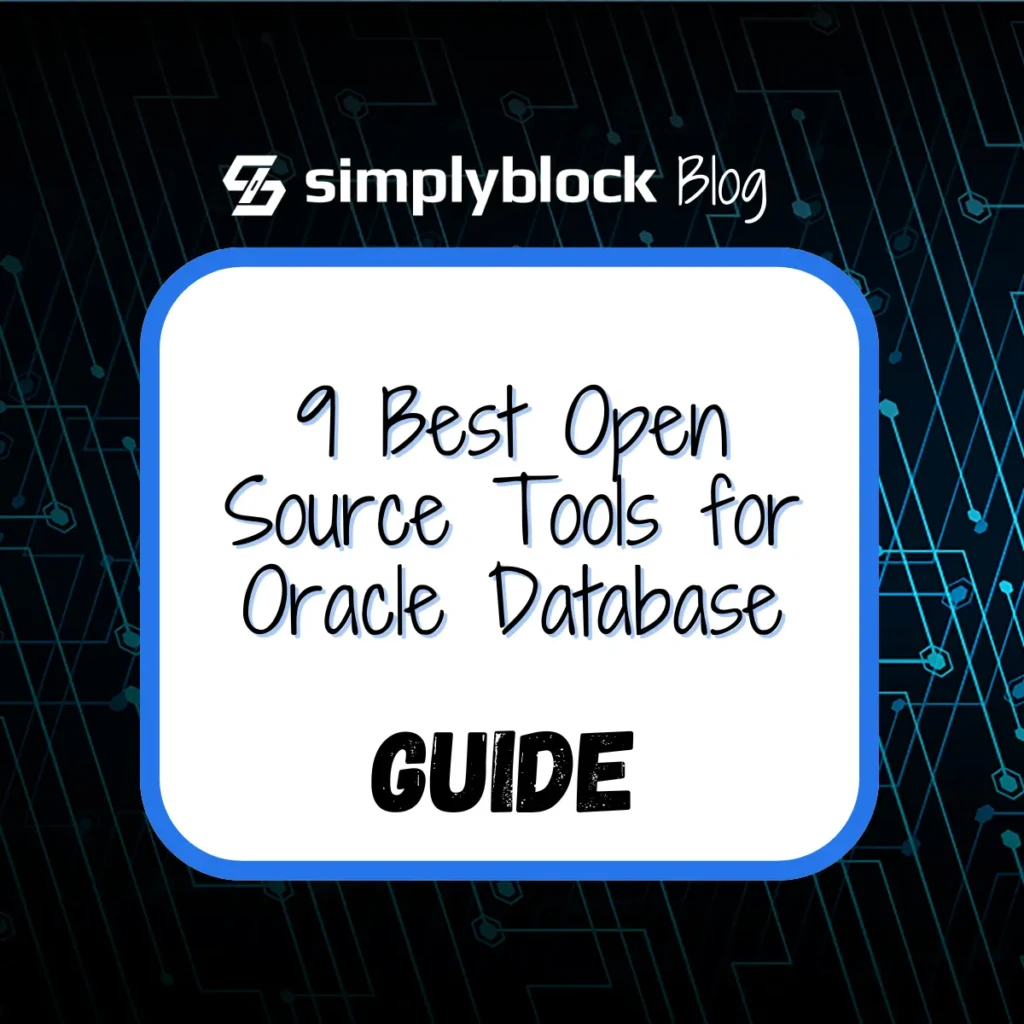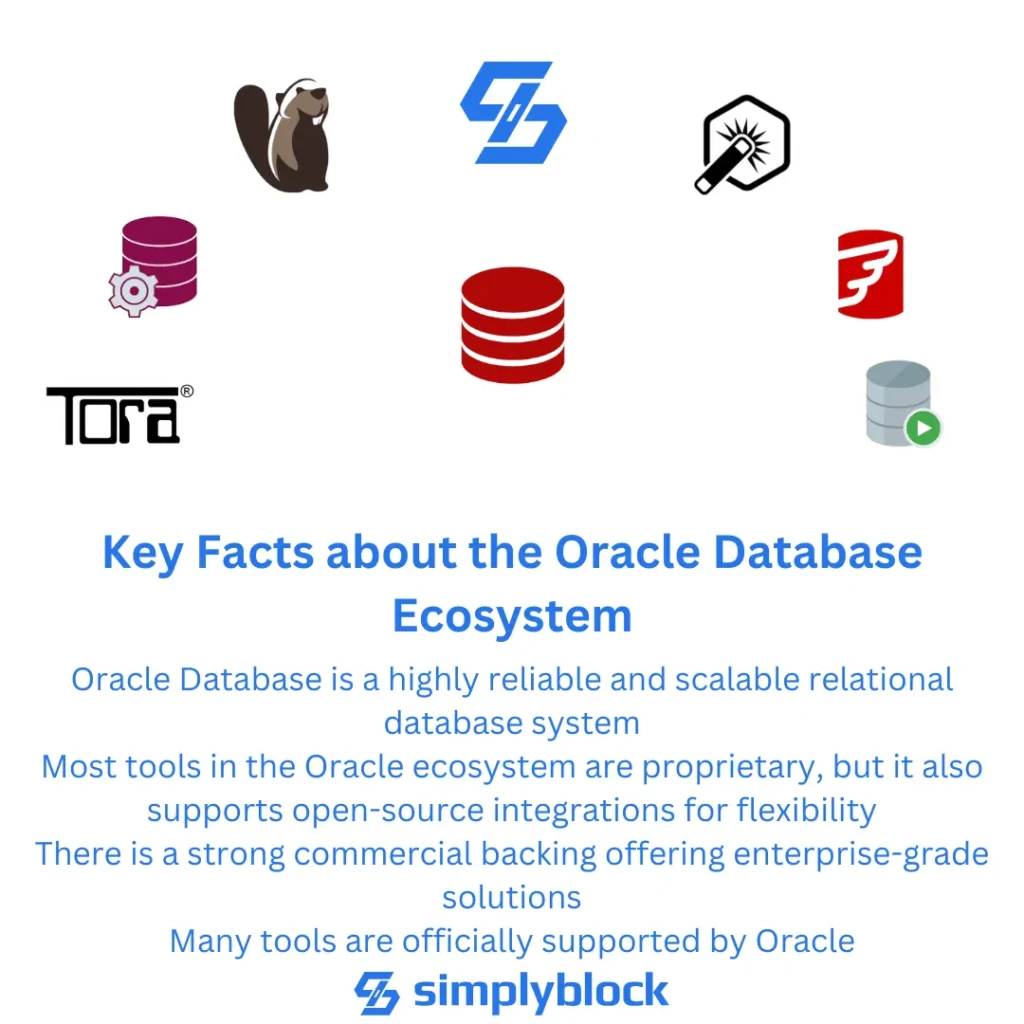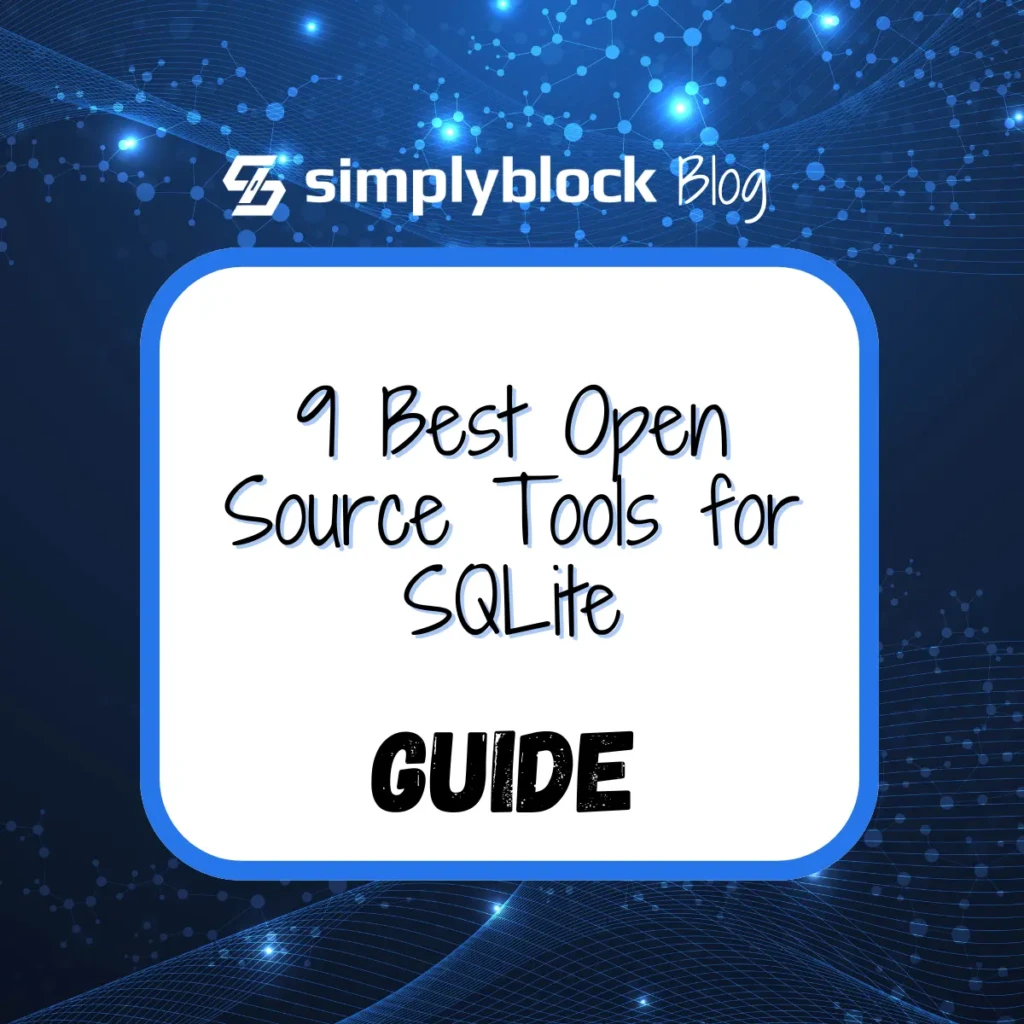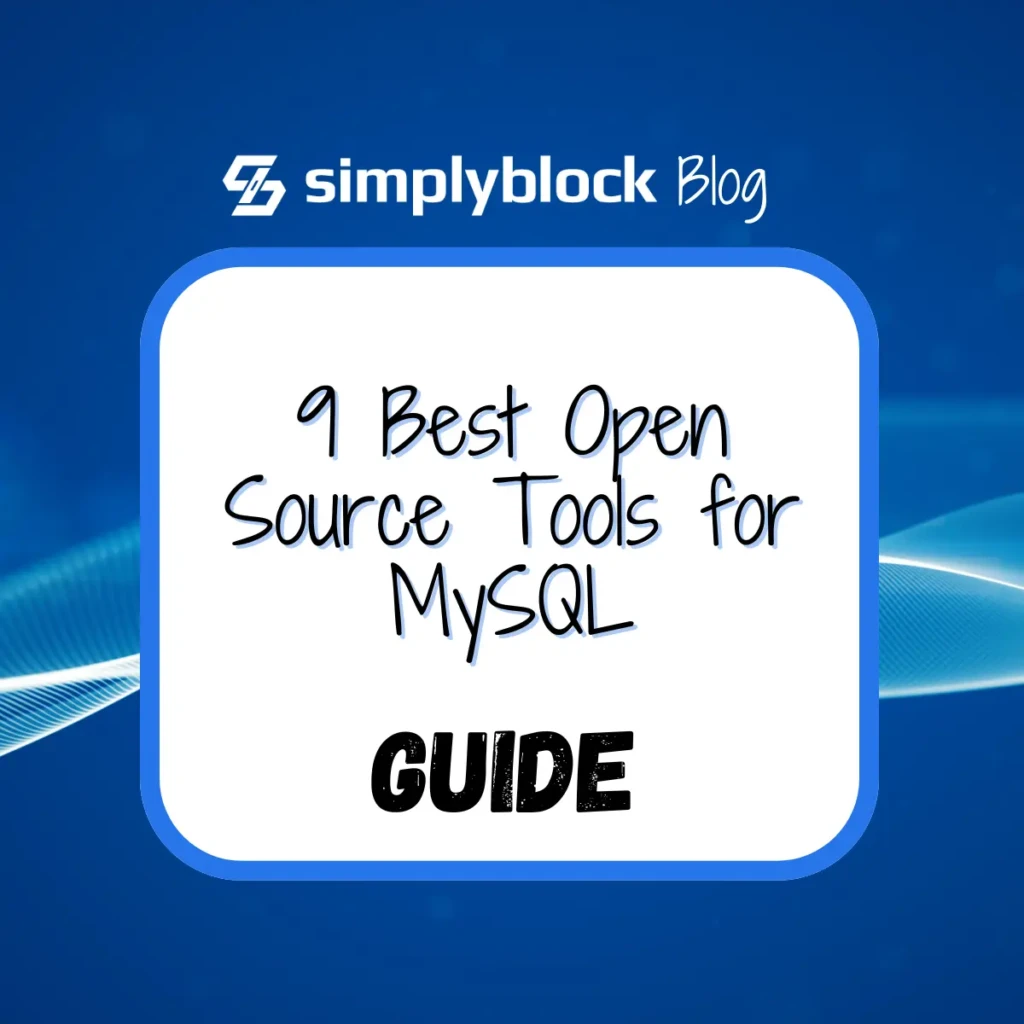
What are the best open-source tools for your Oracle Database setup?
Oracle Database is a robust and widely-used relational database management system that powers critical applications across industries. Despite being a commercial product, the Oracle ecosystem has grown to include numerous open-source tools that can enhance the performance, management, and development of Oracle databases. These tools provide a cost-effective way to optimize your Oracle environment, ensuring efficiency and reliability. As Oracle Database continues to be a preferred choice for enterprise solutions, the demand for complementary tools has increased. In this post, we will explore nine essential open-source tools that can help you get the most out of your Oracle Database.
1. Oracle SQL Developer
Oracle SQL Developer is a free, open-source integrated development environment (IDE) that simplifies the development and management of Oracle databases. It provides tools for SQL and PL/SQL development, database administration, and data modeling. With its intuitive interface, SQL Developer allows you to query, script, and manage your Oracle databases with ease.
2. Liquibase
Liquibase is an open-source database schema change management tool that supports Oracle Database. It helps automate database deployments, making it easier to track, version, and deploy database changes. Liquibase integrates seamlessly into CI/CD pipelines, ensuring that your Oracle databases are always in sync with your application code.
3. ODAT (Oracle Database Attack Tool)
ODAT is an open-source penetration testing tool designed specifically for Oracle databases. It allows security professionals to audit and assess the security of their Oracle environments by simulating attacks. ODAT is essential for identifying vulnerabilities and ensuring that your Oracle databases are secure from potential threats.
4. Ora2Pg
Ora2Pg is an open-source tool that helps migrate Oracle databases to PostgreSQL. It is highly customizable and supports the conversion of complex Oracle database structures to PostgreSQL. Ora2Pg simplifies the migration process, reducing the time and effort required to move from Oracle to an open-source environment.
5. DBeaver
DBeaver is an open-source database management tool that supports a wide range of databases, including Oracle. It offers a powerful SQL editor, visual query builder, and data modeling tools, all within a single interface. DBeaver is ideal for developers and database administrators who need to manage and analyze their Oracle databases efficiently.
6. Flyway
Flyway is an open-source database migration tool that supports Oracle Database. It provides version control for your database schema changes, making it easier to track and deploy updates. Flyway is lightweight and integrates with various CI/CD tools, ensuring smooth database migrations in your development workflow.
7. Ora2ELK
Ora2ELK is an open-source tool that integrates Oracle Database with the ELK stack (Elasticsearch, Logstash, Kibana) for real-time log analysis and monitoring. It helps you extract, transform, and load (ETL) data from Oracle to Elasticsearch, enabling advanced analytics and visualization with Kibana. Ora2ELK is essential for gaining insights into your Oracle database performance and usage.
8. TOra
TOra is an open-source GUI tool for managing Oracle databases. It provides a rich set of features, including database browsing, SQL scripting, and performance monitoring. TOra’s user-friendly interface makes it easy for developers and DBAs to interact with their Oracle databases, improving productivity and reducing the learning curve.
9. Allround Automations PL/SQL Developer
While not entirely open-source, PL/SQL Developer offers a free version that provides essential tools for Oracle database development. It supports PL/SQL programming with features like syntax highlighting, debugging, and integrated documentation. PL/SQL Developer is widely used by Oracle developers to streamline their coding and testing processes.

How to Optimize Oracle Storage with Open-source Tools
This guide explored nine essential open-source tools for Oracle Database, from SQL Developer’s IDE capabilities to TOra’s management features. While these tools excel at different aspects – Liquibase for schema management, Flyway for migrations, and DBeaver for querying – proper implementation is crucial. Tools like ODAT provide security testing, while Ora2ELK enables advanced monitoring. Each tool offers unique approaches to managing and optimizing Oracle deployments.
Why Choose simplyblock for Oracle Database?
While Oracle Database provides robust data management capabilities, optimizing storage costs and ensuring efficient management of tablespaces and redo logs is crucial. This is where simplyblock’s intelligent storage optimization creates unique value:
Optimized Oracle Storage Management:
Simplyblock enhances Oracle’s storage efficiency through sophisticated volume management. Using thin provisioning and automatic tiering, simplyblock optimizes storage utilization for Oracle’s tablespaces, redo logs, and archive logs. Frequently accessed tablespaces benefit from ultra-low latency NVMe storage, while less active segments automatically move to cost-effective S3 storage. This is particularly valuable for managing Oracle’s archived redo logs and historical tablespaces, where storage costs can accumulate rapidly.
Oracle Performance Enhancement:
Simplyblock streamlines Oracle’s I/O operations through its unified storage pool approach. By leveraging NVMe over TCP and local instance storage caching, simplyblock provides exceptional performance for Oracle’s write-ahead logging and random read operations. The platform’s ability to pool EBS volumes ensures consistent I/O performance across all database files, while its multi-attach capabilities enable seamless Oracle RAC operations. This architecture is especially beneficial for organizations running demanding OLTP workloads that require high IOPS and low latency.
Enterprise-Grade Oracle Protection:
Simplyblock strengthens Oracle’s data protection through advanced backup and disaster recovery features. The platform’s consistent snapshot capability ensures that backups maintain consistency across all database files, including control files, data files, and redo logs. By streaming write-ahead logs to S3, simplyblock provides near-zero RPO disaster recovery without impacting database performance. This approach is particularly valuable for organizations requiring rapid recovery capabilities while maintaining strict data consistency, as simplyblock can coordinate recoveries across multiple database instances and auxiliary services.
If you’re looking to further streamline your Oracle operations, simplyblock offers comprehensive solutions that integrate seamlessly with these tools, helping you get the most out of your Oracle Database environment
Ready to take your Oracle Database management to the next level? Contact simplyblock today to learn how we can help you simplify and enhance your Oracle journey.
Questions and Answers
Oracle SQL Developer is a free, integrated development environment that simplifies the development and management of Oracle Database. It offers complete end-to-end development of PL/SQL applications, a worksheet for running queries and scripts, a DBA console for managing the database, and a reports interface.
DBeaver is a free, open-source database management tool that supports Oracle among other databases. It provides an intuitive interface for data browsing, editing, and visual query building, enhancing productivity for developers and database administrators.
SQuirreL SQL Client is a free, open-source graphical tool that allows users to interact with Oracle databases and other JDBC-compliant databases. It offers features like code completion, syntax highlighting, and a plugin architecture that allows for database-specific extensions.
Yes, TOra (Toolkit for Oracle) is a free software database development and administration GUI that provides features like a PL/SQL debugger, an SQL worksheet with syntax highlighting, a database browser, and a comprehensive set of database administration tools. It supports Oracle Database and has added support for MySQL, PostgreSQL, and Teradata databases
Yes, HammerDB is an open-source database benchmarking application that supports Oracle among other databases. It is used to create test schemas, load them with data, and simulate the workload of multiple virtual users against the database for both transactional and analytic scenarios.




